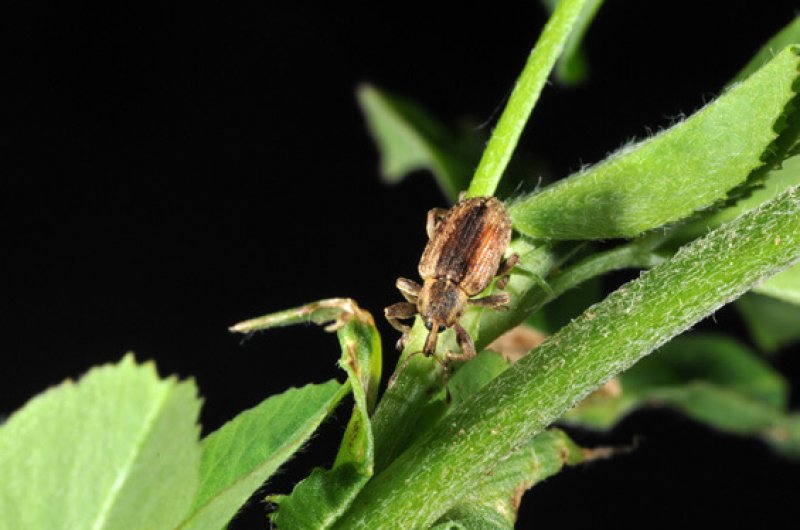Integrated pest management of alfalfa in California will be “profoundly” impacted by the loss of the pesticide chlorpyrifos next year, research scientists say.
The California Environmental Protection Agency announced Oct. 8 that virtually all use of the pesticide chlorpyrifos will end next year following an agreement between the Department of Pesticide Regulation and pesticide manufacturers.
Sale of chlorpyrifos products in California will end Feb. 6, 2020, and growers will no longer be allowed to possess or use them after Dec. 31.
…
“This is a major issue for alfalfa since it is one of the most popular wide-spectrum insecticides for management of key alfalfa pests,” University of California-Davis forage expert Daniel Putnam and entomologists Rachel Freeman Long and Ian Grettenberger wrote in a UC-Davis Cooperative Extension newsletter, the Oct. 11.
They cited the alfalfa weevil, which chews on foliage and an aphid complex that suck juices from the plant.
While use of chlorpyrifos has declined, it was still used on 153,000 acres of alfalfa in California in 2017 and the few alternative pesticides are not as effective, the scientists wrote.
Read full, original article: California pesticide ban will hit alfalfa growers, scientists say































